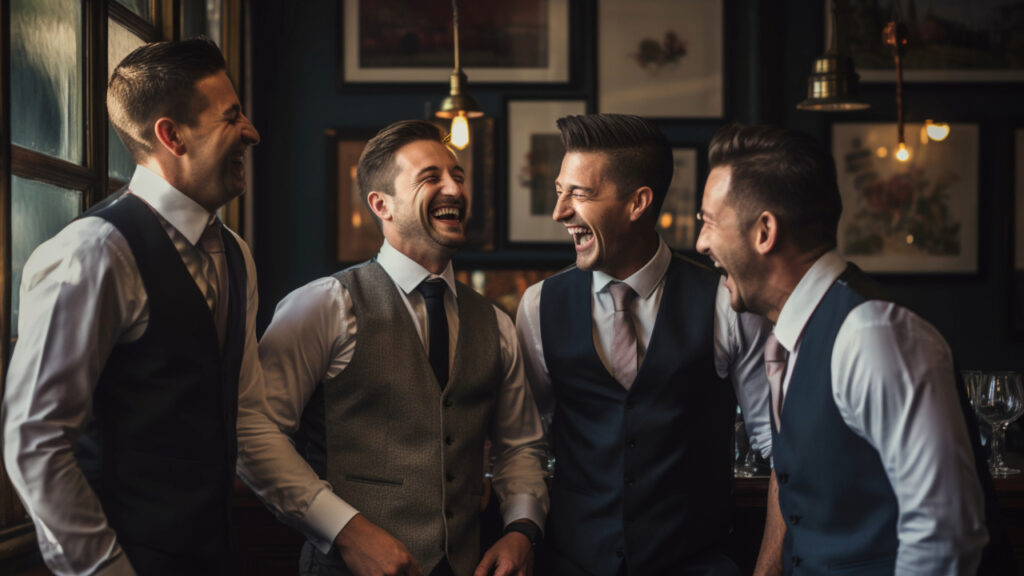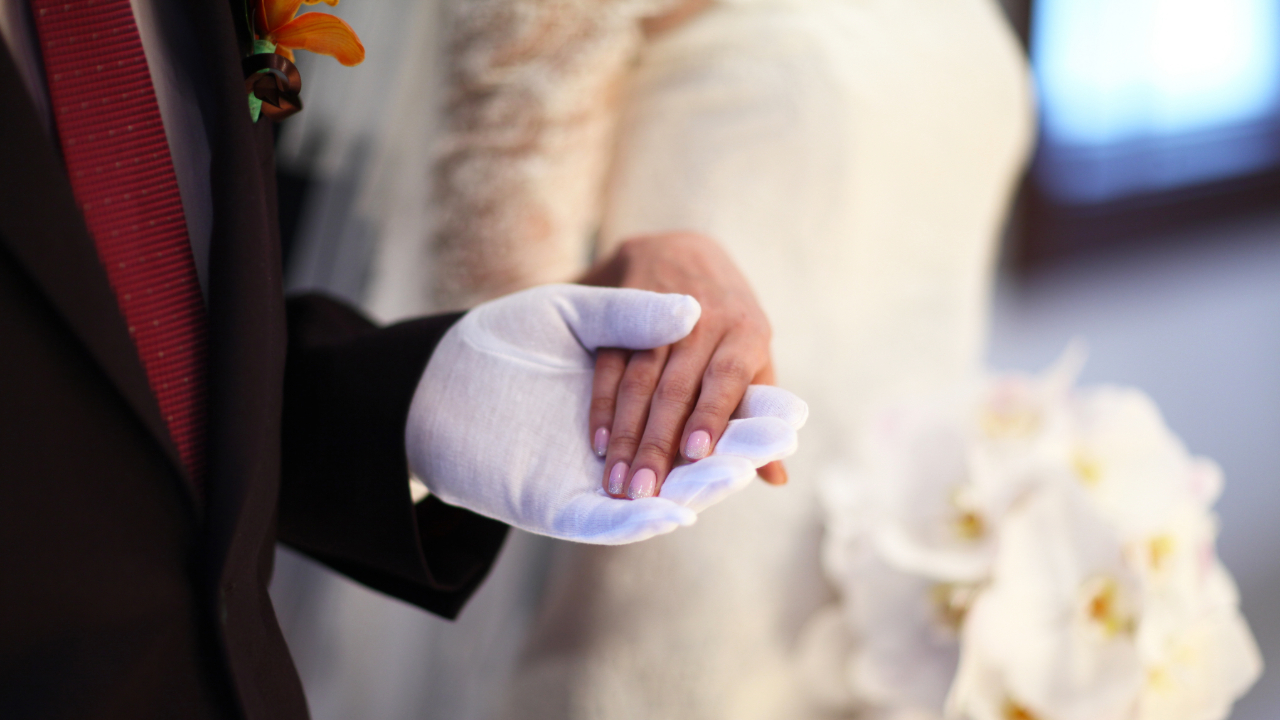Planning your wedding is an adventure filled with excitement, dreams, and a bit of inevitable stress. Among the whirlwind of activities, there’s one event that deserves your special attention – the wedding rehearsal. Think of it as the dress rehearsal for one of the biggest performances of your life. It’s the time when you, along with your loved ones, get a sneak peek into how your big day will unfold. So, grab a cup of your favourite beverage, relax, and let’s dive into some insider tips on how to make your wedding rehearsal not just successful, but also enjoyable and memorable. Whether you’re tying the knot in the heart of Europe or elsewhere, these pointers are universal, helping you glide through the rehearsal with ease and confidence.
▶️ Read also: Hiring a wedding planner for your European wedding, is it worth it?
Selecting the ideal rehearsal venue
Selecting the perfect venue for your wedding rehearsal is more important than it might initially seem. Ideally, the rehearsal should take place at the same location as your wedding ceremony. This choice is not just about convenience; it’s about giving your wedding party a chance to familiarize themselves with the space. Walking through the actual venue helps everyone get a real feel for the layout, timing, and flow of the ceremony. It allows you to visualize where decorations will be, how guests will be seated, and even how the lighting at that particular time of day will affect the mood. If the actual venue isn’t available, try to find a place that closely mirrors its setup. This could be a similar-sized hall or even a spacious garden, depending on your wedding venue.
Another aspect to consider is the ambiance of the rehearsal venue. A relaxed, comfortable environment can make a huge difference. It sets a calm and enjoyable tone, encouraging everyone to participate and pay attention. If your budget allows, consider venues that offer some extra amenities or services that can contribute to a smoother rehearsal experience, such as on-site coordinators or audiovisual equipment.
Timing your rehearsal just right
The timing of your wedding rehearsal is just as crucial as the venue choice. Typically, rehearsals are held one to two days before the wedding. This timing is strategic; it’s close enough to the wedding that everyone keeps the details fresh in their minds, but not so close that it adds to last-minute stress. Consider the availability of your wedding party, immediate family, and any key participants when picking a date and time.
Weekday evenings are a common choice, especially if most of your wedding party works during the day. However, if you have people travelling long distances to attend your wedding, a rehearsal earlier in the day or the weekend before might be more considerate. It’s a delicate balance between accommodating others and ensuring the rehearsal serves its purpose. Remember, the goal is to have everyone who plays a significant role in the ceremony present. Also, factor in some buffer time for late arrivals or unexpected delays – they’re almost inevitable, and a little flexibility can keep the atmosphere light and stress-free.
Designing a meticulous rehearsal plan
Creating a detailed itinerary for your wedding rehearsal is akin to drawing a map for a treasure hunt; every step is crucial and leads to the ultimate prize – a flawless wedding day. Start by outlining the timeline of events, from the moment guests begin to arrive to the final rehearsal moments. Include key elements like the order of the processional, the positions of the wedding party at the altar, and the specifics of any special rituals or readings. Don’t forget to detail the recessional and any post-ceremony actions. It’s beneficial to have a clear structure, but also keep it flexible enough to accommodate last-minute adjustments.
▶️ You may like: How to master the wedding seating chart
This itinerary should be distributed in advance to everyone involved, ensuring they know precisely what to expect and what is expected of them. Additionally, allocate time for a walk-through of key moments like vows, ring exchanges, and the kiss, so everyone feels confident and prepared. Remember, the more detailed your itinerary, the smoother your rehearsal will go.
Ensuring key participants are involved
The effectiveness of your wedding rehearsal largely hinges on the presence and involvement of key people. This includes not just the bride and groom but also the entire wedding party – bridesmaids, grooms men, the maid of honour, and the best man.
Equally important are family members who have special roles, such as parents and grandparents. If children are part of your ceremony as flower girls or ring bearers, include them in the rehearsal to familiarize them with their roles in a less pressured environment. Additionally, anyone with a specific task during the ceremony, like readers or musicians, should be present. Their participation helps in ironing out any logistical kinks, such as moving to and from the stage area or handling props.
And if you’re working with a wedding planner or coordinator, their guidance during the rehearsal is invaluable. They can offer professional insights, manage the flow of the rehearsal, and ensure that everyone understands their roles and responsibilities. Encourage open communication among all participants during this phase, as it helps build a comfortable and cooperative atmosphere, vital for a successful rehearsal.

Perfecting the ceremony through practice
The heart of your wedding rehearsal lies in practising the ceremony itself. This is where your meticulously crafted plan comes to life. Begin with the processional, ensuring everyone understands the order in which they will enter and the pace they should maintain. This is especially important for larger wedding parties or for those involving young children, who may need extra guidance. Practice the positioning at the altar or equivalent space, making sure everyone knows where to stand. This is crucial for both visual balance and ensuring that your photographer can capture beautiful shots.
During the rehearsal, walk through each segment of the ceremony. If you have special traditions or rituals, such as lighting a unity candle or sand ceremony, practice these to ensure smooth execution. For couples writing their own vows, decide if you want to practice them out loud during the rehearsal or keep them a surprise for the wedding day. Remember, the goal is not to memorize every step but to become comfortable with the ceremony’s flow, reducing anxiety and uncertainty on the actual day.
Fine-tuning technical details
Technical aspects of the ceremony often go unnoticed until something goes awry, so addressing them during your rehearsal is essential. This includes testing the sound system to ensure all guests will hear your vows and any readings or music clearly. If you’re using microphones, have each speaker practice using them. This is particularly important for outdoor venues where wind and background noise can interfere.
Coordinate with your musicians or DJ to rehearse any musical cues for the processional, recessional, and key moments during the ceremony. This practice helps in timing your entrance and movements. Additionally, discuss the photography and videography plans. Inform your photographer and videographer of the ceremony’s flow and any special moments you want captured. They can also provide guidance on positioning to get the best shots without obstructing guests’ views.
If you’re incorporating multimedia elements like a slideshow or video, ensure the equipment is set up and functioning correctly. A run-through of these elements will prevent technical glitches that could disrupt the ceremony’s flow. By paying attention to these details, you ensure that the technical elements support, rather than detract from, your perfectly planned ceremony.
📱 Four essential tools for streamlining your wedding rehearsal planning
For creating a detailed rehearsal plan for your wedding, there are several apps and websites that can be very helpful:
- Evernote: This app allows you to record and save wedding ideas in various formats and is useful for creating checklists and reminders throughout the planning process. It’s great for collaboration, allowing you to share ideas with your wedding planner, fiancé, or bridal party.
- Wedding Spot: A one-stop-shop for venue-related planning, this app can help you find and compare various wedding venues.
- Joy: Excellent for both traditional and virtual weddings, Joy offers website creation, guest list management, gift registry options, photo album creation, and livestream capabilities for online events. It’s a great tool for managing digital RSVPs and interacting with guests.
- WeddingHappy: This straightforward app is great for managing wedding tasks, payments, and vendors. It includes complete checklists and a countdown to your wedding day
Each of these tools offers unique features to streamline different aspects of wedding planning, including the rehearsal, helping you to organize and execute your plans effectively.
A well-executed wedding rehearsal sets the stage for a smooth and memorable wedding day. By focusing on the key areas mentioned and maintaining a balance of organization and flexibility, you can ensure that your rehearsal is a success.






